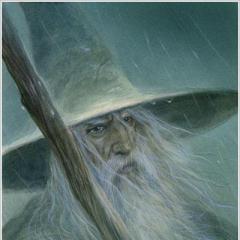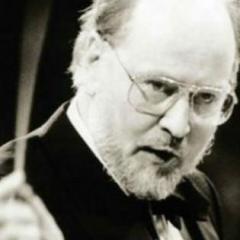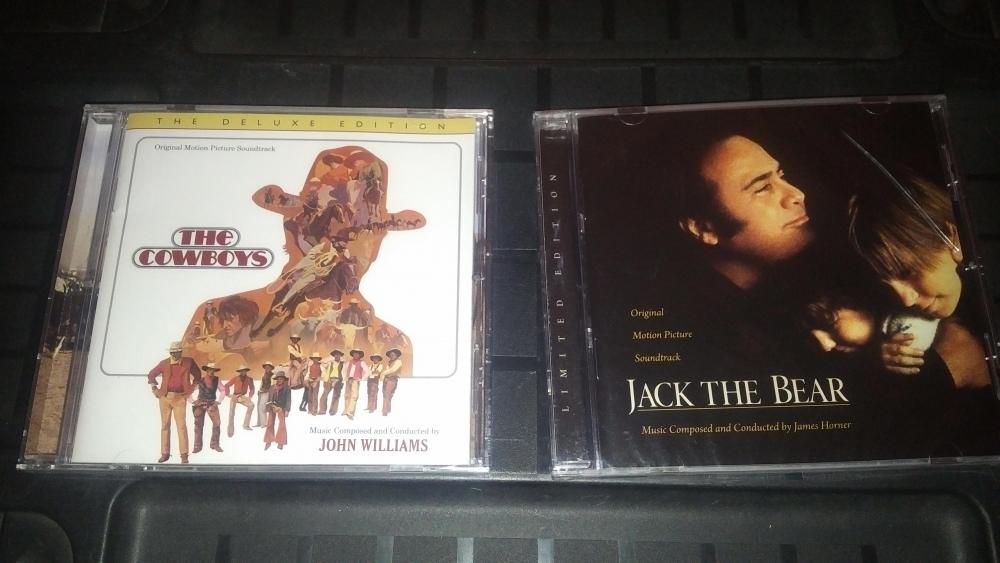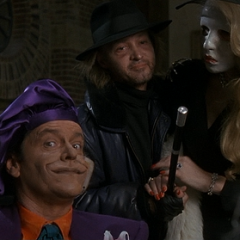Leaderboard
Popular Content
Showing content with the highest reputation on 10/07/18 in all areas
-
Star Wars IX The Rise of Skywalker (JJ Abrams 2019)
Not Mr. Big and 3 others reacted to Disco Stu for a topic
I like the idea of JJ making the cast and crew watch Hocus Pocus in preparation for production.4 points -

Williams honored at Grammy Salutes Music Legends Concert (7/14/18)
Will and 2 others reacted to Miguel Andrade for a topic
On July 14th at the Dolby Theatre: https://dolbytheatre.com/events/details/grammy_salute_to_music_legends_1 Anne Akiko Meyers, accompanied by the American Youth Orchestra will perform the theme from Schindler's List. The show is to be broadcast as part of Great Performances series later in the year.3 points -

Star Wars IX The Rise of Skywalker (JJ Abrams 2019)
The Illustrious Jerry and 2 others reacted to Fancyarcher for a topic
3 points -
I found all that so entertaining. All the graciousness among film composers gets dull.2 points
-
Bette Midler is reportedly in talks to play Rose Tico's abusive mother. Sarah Jessica Parker will be portraying a Fathier.2 points
-

The Official Intrada Thread
Yavar Moradi and one other reacted to Brundlefly for a topic
Is the isolated score of The Mummy taken from the film stems? If so, there could be some nice surprises regarding unused cues and expanded cues.2 points -
The STAR WARS Main Title
martybmusic and one other reacted to TownerFan for a topic
Marty, congratulations for your podcast, which I'm thoroughly enjoying. This is the kind of in-depth musical analysis that I think is worth when discussing the work of John Williams. It's lovely to see more and more people sitting down and studying up the scores. Film music studies need people like you and I hope more will follow.2 points -
Agreed. I'd certainly upgrade both Goldsmith's and Silvestri's Mummy soundtracks if possible.2 points
-
Of course you can always adapt music to fit a 3/4 time when it's not written as such. Something about the melody of Rey's Theme, which is in 4/4, makes it a particularly good waltz when adapted to 3/4. Have a listen to the mockup I did below: http://picosong.com/wfnek/2 points
-

The STAR WARS Main Title
The Illustrious Jerry and one other reacted to martybmusic for a topic
For those interested, the next episode in the series:2 points -
"2018 is gonna be one for the books", says LLL regarding JW
bollemanneke reacted to Disco Stu for a topic
Honestly I’d forgotten that this thread was focused on just LLL. I’ve been thinking of it as a general “Williams releases in 2018” hype thread. Of course Williams releases by any other label had gotten so rare there kinda wasn’t a difference between the two in my mind.1 point -
"2018 is gonna be one for the books", says LLL regarding JW
bollemanneke reacted to Disco Stu for a topic
You mean for the year so far? Excuse me, The Cowboys isn’t nothing!!!!!!1 point -

The Official Pop and Rock Music thread
Sharkissimo reacted to Loert for a topic
I may have posted this on here before; still I don't think I could ever get sick of this song! It's just so good.1 point -

JWFan Composer Roast #1 (Pilot): Danny Elfman
Nick Parker reacted to publicist for a topic
You mean like 'Tulip Fever'?1 point -
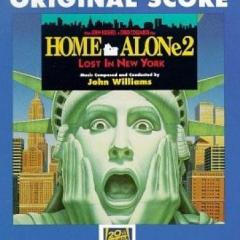
What Is The Last Film You Watched? (Newer Films)
Fancyarcher reacted to JoeinAR for a topic
Ant Man is a blast pure and simple. And the mid credit stinger is -wow.1 point -

JWFan Composer Roast #1 (Pilot): Danny Elfman
Kasey Kockroach reacted to crocodile for a topic
Karol1 point -
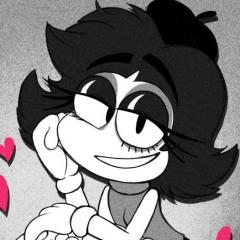
JWFan Composer Roast #1 (Pilot): Danny Elfman
Disco Stu reacted to Kasey Kockroach for a topic
Honey, I'm home. Oh, I forgot. I'm not married.1 point -
JWFan Composer Roast #1 (Pilot): Danny Elfman
Nick Parker reacted to Disco Stu for a topic
Dude. He was just trying to imply that his reply with the laughing emoji was sarcastic.1 point -
JWFan Composer Roast #1 (Pilot): Danny Elfman
Nick Parker reacted to Disco Stu for a topic
Just please don't let this become the "Unpopular Opinions: Danny Elfman" thread1 point -
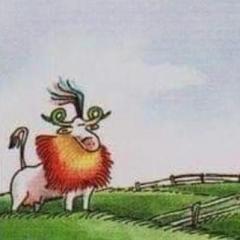
Star Wars IX The Rise of Skywalker (JJ Abrams 2019)
Chen G. reacted to The Illustrious Jerry for a topic
Well they threw in Tauriel, but she went with the dwarf....1 point -
1 point
-
Bilbo is such a terrible character. Tolkien was so misguided not giving him a romantic relationship. The Hobbit, SJW trash!1 point
-

Star Wars IX The Rise of Skywalker (JJ Abrams 2019)
A. A. Ron reacted to Kasey Kockroach for a topic
If Rey and Finn fell in love, it would be the downfall of feminism! The answer would obviously be give Rey a girlfriend, but Star Wars isn't allowed to be fun so that won't happen.1 point -
Oh do please teach us, professor. You're so wise and we need guidance.1 point
-
You make it seem as though that's a bad thing.1 point
-

Star Wars 3/4 time signatures
Morag reacted to The Illustrious Jerry for a topic
This sounds very classical (I can't put my finger on where I've heard it before), but its Powell. Just that little bit around the 50 second mark. John Powell's Star Wars Slavonic Dance, if it helps...1 point -

What Is The Last Film You Watched? (Older Films)
The Illustrious Jerry reacted to Unlucky Bastard for a topic
1 point -
In my lifetime it has been Williams Goldsmith and Horner in that order. And I mean that over Herrman Newman Steiner Tiomkin and all the other early film greats. William Goldsmith and Horner have No contemporaries. Certainly none in the current crop of so called talent.1 point
-
Star Wars IX The Rise of Skywalker (JJ Abrams 2019)
Not Mr. Big reacted to Disco Stu for a topic
Poor wittle baby star wars fans, they're having a tough time1 point -
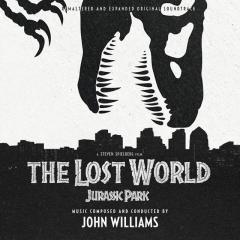
Star Wars IX The Rise of Skywalker (JJ Abrams 2019)
Yavar Moradi reacted to Luke Skywalker for a topic
It would have been nice to have a friends reunion in TFA, and then they could have killed them one at a time afterwards...1 point -
Some very early Johnny, his two first contributions to soundtracks we have so far on album. Original TV Music From "Wagon Train" (1959, Mercury Records, MG-20502) (Reissued for digital download in 2011, Red Bitch Music) --> TOP NOTCH RESTORATION BTW (Reissued in 2013, Fresh Sound Records, JM 1005, Compilation) (Reissued for digital download in 2013, Jazz in the Movies)1 point
-
Since the dwarf names appearing in the Hobbit and consequently in LotR are mostly derived from the Völuspa list of dwarves in Edda, I think the Norse pronunciation is the one to use. Plus these are probably public dwarf names, their private secret Khuzdul names reserved only for their closest kin.1 point
-
.thumb.gif.df2a851b259fbffe34b18fc1c796422a.gif)
Star Wars 3/4 time signatures
Morag reacted to Cerebral Cortex for a topic
We get to hear the Resistance March at 3/4 briefly in the opening to The Last Jedi, but I realize that isn't going to help you out in your quest.1 point -

Star Wars IX The Rise of Skywalker (JJ Abrams 2019)
Not Mr. Big reacted to mstrox for a topic
Agree to disagree! Since 2012, I’ve been slowly reading through from the beginning and a lot of Legends is just vile.1 point -
Julius Caesar by Miklós Rózsa: This is the first actual score I ever listened from the composer and it still holds a special place in my heart. The re-recording by Bruce Broughton and the Sinfonia of London is exemplary and wonderfully recorded and as ever showcases Rózsa's artistry not just as a film composer but as a composer period. His partly tortured partly ruminative string theme for Brutus, his pompous militaristic march theme for Caesar and various little motifs all seem effortless and inevitable in their construction and interaction which is best displayed in the finale of Caesar Now Be Still where the composer deftly joins the main themes in a magnificent counterpoint development that ever grows in intensity only to suddenly end with a powerful percussion cadence. It might not be overly subtle in its approach but always thoughtful and intricate in its construction and on album it is vivid musical storytelling well worthy of the famous Shakespeare play.1 point
-

Star Wars IX The Rise of Skywalker (JJ Abrams 2019)
Yavar Moradi reacted to Ollie for a topic
This film is gonna need all the help it can get.1 point -
Star Wars IX The Rise of Skywalker (JJ Abrams 2019)
Not Mr. Big reacted to Disco Stu for a topic
This movie has enough on its plate we don’t need to bringing back another OT character. I don’t like it.1 point -

Star Wars IX The Rise of Skywalker (JJ Abrams 2019)
Yavar Moradi reacted to Ollie for a topic
2 films too late, but welcome news.1 point -

The Official Intrada Thread
Yavar Moradi reacted to Brundlefly for a topic
Oh no, I'm not patient enough to wait another week!1 point -
Star Wars 3/4 time signatures
Morag reacted to Sharkissimo for a topic
The A theme at 3:33 and B theme at 1:23 are in 3/2 and 3/4, respectively. The Grevious theme is more of a 6/8 gigue (or a lively siciliano), but by slowing down the tempo and shifting the rhythmic emphasis to the second and third beats of the bars, you might get something resembling a waltz. Good luck with your masquerade! ps. if you need any of the sheet music, feel free to send me a PM.1 point -
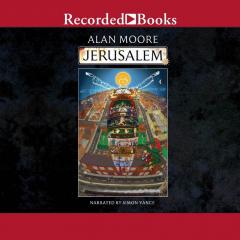
Moments when JW uses themes like they're passing by in the wind
leeallen01 reacted to #SnowyVernalSpringsEternal for a topic
Agreed, but not in a Jaws score. Williams is obviously using the Jaws theme here, in various guises. Only on JWfan!1 point -
They take themselves at two for fightin John... that's not fair!1 point
-

Anyone else think James Horner is better than John Williams?
James reacted to Unlucky Bastard for a topic
Yes!1 point -
1 point
-

Star Wars IX The Rise of Skywalker (JJ Abrams 2019)
Yavar Moradi reacted to crumbs for a topic
Geez I don't envy the position JJ is in for the this film. If he doubles down on TLJ, half the fanbase will crack the shits. If he just reverts to safe mode, he essentially repeats the same mistakes he made on TFA and pisses off the other half. This film is basically the impossible sequel.1 point -
I would say the through-line for all three trilogies is the conflict between good (Jedi, the Republic and/or Rebels/Resistance) and evil (Sith, Empire and/or First Order), which makes sense. Conflict is, after all, at the heart of any narrative, including over-arching narratives of multi-entry film series such as these. Hell, it’s in the name: Star WARS.1 point
-
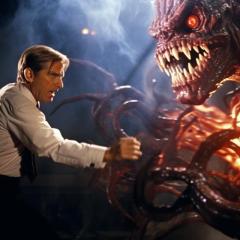
What does everyone think of 'March of the Resistance'?
Cerebral Cortex reacted to karelm for a topic
Welcome, Sithoid. Excuse this very lengthy response but first a couple of points… Regarding what is ”legal” in classical music, this simply means musical styles are derived from adhering to time honored convention. Think of it as rules of grammar. Just as grammar has rules, these rules evolved over time so if we applied the rules of Shakespeare’s time to modern writing, it would seem extremely dated. If we want to write a story that takes place in Shakespeare’s time, loosely following the rules of that era would help immerse modern audiences but following old English rules too strictly and it might not sound right since that would ignore the conventions we have become used to. So this is in a broad definition what is meant by the rules of music. It is a set of conventions that were adhered to during specific times (and places) but have evolved and developed with the ingenuity, creativity, and rebelliousness of successive waves of composers. Rules are ultimately subjective but when learning them, teachers might insist on adhering to the rule to gain a mastery of the material and the expectation is the student will just add it to their comprehension of the material rather than follow it ad nauseam. In my experience, teachers did not mind if I broke a rule if it was done intentionally rather than out of ignorance to the rule. Rules are also genre specific and many times modern composers borrow from different styles or regional rules as well. For example, the 20th century composer Stravinsky also wrote neo-classical music referring to music of the classical era though usually would insert his style. The tritone (augmented 4th) was a forbidden interval through the Middle Ages because it was considered unstable and difficult to sing (the devil in music) but in Baroque and classical eras, is common as tension and release became an important part of the developing musical vocabulary. In jazz or contemporary music it is very common. Also an important distinction needs to be made regarding historical (western classical) music and film music. Generally speaking, in classical era, musical movements tend to end with a cadence or some clarity to their ending. In film, you might not want clarity since the musical drama should support the theatrical drama. For example, in “The Force Awakens” OST track called “The Abduction”, it ends with a suspension (sus-4) which wants to resolve to the 3rd of the chord. It feels incomplete as it is. This makes total sense dramatically because the heroine, Rey, was just kidnapped so to add to the helplessness of the situation, JW ends the cue on the sus-4 with a yearning quality. Raising the 7th (the sharp 7th) is very common since that is the leading tone. There is nothing unusual about that and is frequent in music. It also helps establish key changes since the 7th can act as a leading tone to the new tonic it will help reinforce harmonic changes. The way I would see the intro of this cue (using the OST as reference) is the key starts in A minor then descends a perfect fourth to E minor then descends a 4th to B minor which has an F# as leading tone to G minor which is where the theme begins at bar 14 of your sketch (or at 0:15 seconds on the OST track). The first three chords are a fifth apart (down a perfect forth) so when starting in A minor (A-C-E), the fifth is E and the inverse of the fifth is down a fourth so from A minor go down a perfect fourth to E minor (E-G-B). The B is the fifth of E so down a perfect fourth (the inverse) to get to B and now you have a leading tone of F# to the tonic of the music, G minor. Why does JW do that? Why not just start at G minor? First, the first phrase of the resistance theme ends on the fifth which is a strong interval (Star Wars first two notes for example and about a gazillion other examples), so JW is setting up a sequence where each time we land on the important fifth, we've shifted to that new dominant key and restate the phrase now in the new key. This is a romantic era convention of emphasizing the tonic by dancing around to heighten the impact when we ultimately land on it resulting in an increasing level of climactic build up. Quick music lesson follows…Beethoven’s Symphony No. 9 is in D minor but begins with A (without the third). More instruments are added as the A and E are sustained with arpeggios coming all around. The listener is not sure if the opening is minor or major leading to a prolonged tonal ambiguity as the build continues with great power as we arrive at the tonic of D minor well into the movement. This makes the opening feel like A minor since it acts as the dominant key to the tonic. So this reinforces and sets up the tonic when it finally arrives. This demonstrates Beethoven's dramatical skills...he doesn't just give you the main character, he first sets up the troubled environment where the main character exists. So if we used Beethoven as the model for “March of the Resistance” we would start the opening on the dominant of D minor. JW is doing the equivalent of this here but adding more repeats of the sequence.1 point


